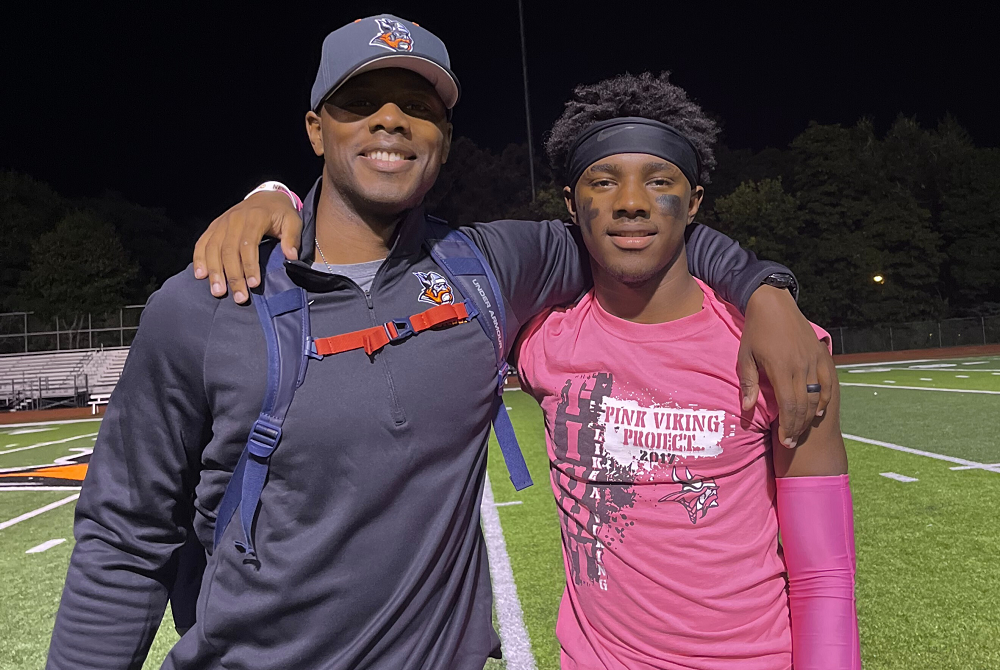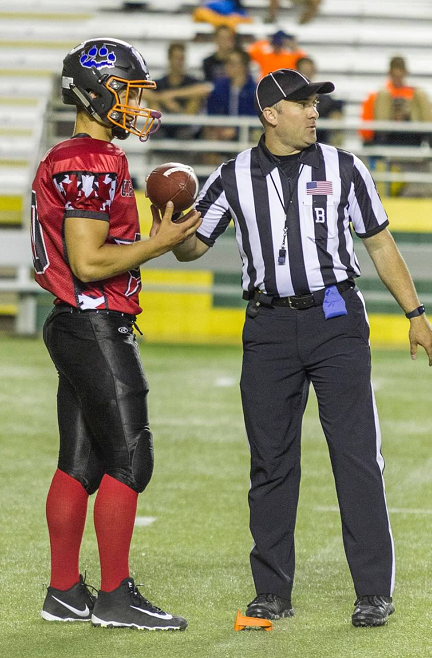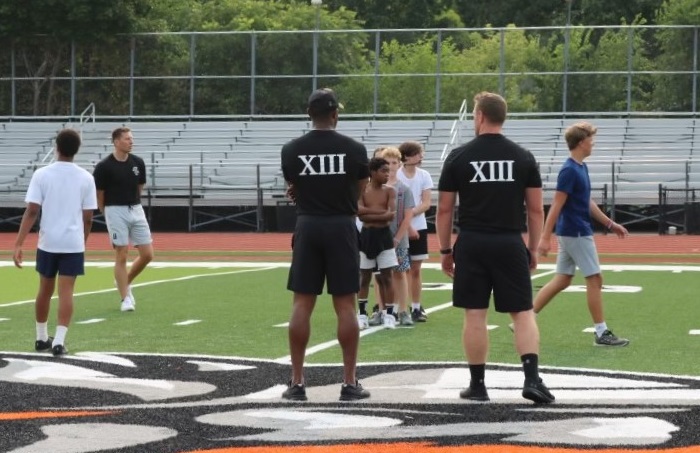
Eight-Player Options
March 10, 2017
Put this in the category of “No good deed goes unpunished.”
In 2011, the MHSAA provided an additional playoff for Class D schools sponsoring 8-player football. This helped save football in some schools and helped return the game of football to other schools. But now that the number of 8-player programs has expanded from two dozen in 2011 to more than 60, there are complaints:
-
Some complaints come out of a sense of entitlement that all final games in both the 8-player and 11-player tournament deserve to be played at Ford Field.
-
Some complaints come from Class C schools whose enrollments are too large for the 8-player tournament. Class C schools which sponsor the 8-player game have no tournament at all in which to play, regardless of where the finals might be held.
-
Some complaints come from Class D schools which protest any suggestion that Class C schools – even the smallest – be allowed to play in the 8-player tournament.
There are now three scenarios emerging as the most likely future for 8-player football:
-
The original plan ... A five-week, 32-team tournament for Class D schools only, with the finals at a site to be determined, but probably not Ford Field.
-
Alternative #1 ... Reduce the 11-player tournament to seven divisions and make Division 8 the 8-player tournament with 32 Class D teams in a five-week tournament, ending at Ford Field.
-
Alternative #2 ... Conduct the 8-player tournament in two divisions of 16 Class D teams, competing in a four-week playoff ending in a double-header at the Superior Dome on the Saturday before Thanksgiving.
The pros and cons of these options are being widely discussed. Sometimes the discussions have a tone that is critical of the MHSAA, which comes from those who forget that it was the MHSAA itself which moved in 2011 to protect and promote football by adding the 8-player playoff tournament option for its smallest member schools. That Class D schools now feel entitled to the Ford Field opportunity and Class C schools want access to an 8-player tournament is not unexpected; but criticism of the MHSAA’s efforts is not deserved.

From MSP Post to Postgame: Lieutenants Return to the (Football) Field
September 27, 2023
While fans are settling into another season, Michigan State Police Lt. Tedric Gibbs has been fully immersed in football for months.
The Jackson Post’s assistant post commander serves as assistant coach for Jackson High School’s varsity football team and for the team at Parkside Middle School.
“I started coaching when my older son was in youth sports, as a way to do something together that we both love,” Gibbs said. “My younger son followed the same path, so I joined his team too. I grew up in Jackson and am grateful to be able to serve my hometown from the sidelines and at our post.”
 Some 400 miles north, Lt. Mark Giannunzio is also a familiar face in and on the field. The MSP Negaunee Post assistant post commander and Eighth District public information officer enforces the rules of the game as a high school and college football official, the latter for the Great Lakes Intercollegiate Athletic Conference.
Some 400 miles north, Lt. Mark Giannunzio is also a familiar face in and on the field. The MSP Negaunee Post assistant post commander and Eighth District public information officer enforces the rules of the game as a high school and college football official, the latter for the Great Lakes Intercollegiate Athletic Conference.
“I started at the high school level to stay involved in athletics and make authentic connections in the community,” Giannunzio said. “It’s rewarding to help teach the game and share knowledge of the rules. I currently have a full 11-game schedule in the GLIAC Division II college conference, with high school games interspersed during the year.”
The correlation among coaching, officiating and policing translates.
“With my fellow troopers, I want to inspire, motivate and encourage to get the most out of them,” Gibbs said. “I take the same approach with my players to figure out what they need from me, as their designated leader, to be as successful as they can. In both capacities, I do the work alongside them. We do it together.”
This approach is especially important when tough times surface. Lieutenant Gibbs’ high school team experienced tragedy right before its first game when a player died in a car crash.
“We focused on adversity,” said Gibbs, who was in a unique position to talk from a police perspective too. “It’s a benefit to have that insight and background and share it with what they can control – make good decisions and wear your seatbelt.”
Lieutenant Gibbs incorporates his coworkers when he can, like during spring conditioning when fellow troopers join him and his players, helping all involved to make new connections and build strong bonds between the students and officers.
 “One of the most important attributes in both careers is communication,” Giannunzio said. “Communication can make or break an official and a police officer. Much like selling a citation to a motorist, I need to be able to sell the penalty in a calm and professional manner. Demeanor and attitude go together on both the football field and when we are out patrolling in the Blue Goose.”
“One of the most important attributes in both careers is communication,” Giannunzio said. “Communication can make or break an official and a police officer. Much like selling a citation to a motorist, I need to be able to sell the penalty in a calm and professional manner. Demeanor and attitude go together on both the football field and when we are out patrolling in the Blue Goose.”
Treating everyone with dignity and respect is something Lieutenants Gibbs and Giannunzio commit to as members of a modern police agency and in their areas of expertise on the football field.
“Both roles afford so many opportunities to develop culture and cultivate teamwork,” Gibbs said. “The best part is watching others flourish and playing a part in their growth.”
PHOTOS (Top) Michigan State Police Lt. Tedric Gibbs, left, serves as an assistant football coach for the Jackson High varsity. (Middle) Lt. Mark Giannunzio officiates at the high school and college levels. (Below) Gibbs also coaches at Jackson Parkside Middle School. (Photos provided by the Michigan State Police.)

